 Elyse Goldstein, it seems, is a popular preacher at St. Anne’s Anglican Church, in central Toronto.
Elyse Goldstein, it seems, is a popular preacher at St. Anne’s Anglican Church, in central Toronto.
“My people love Elyse’s preaching,” Canon Gary van der Meer, incumbent at St. Anne’s, says with a wide grin. “Oh my goodness, if I could just have her fill in for me whenever I’m sick, the church would be full.”
You might say she’d be an unusual choice for a fill-in Anglican priest. Goldstein is in fact the founding and current rabbi of City Shul, a Reform Jewish synagogue a 45-minute walk away. Then again, you might also call van der Meer an unusual choice to preach at a synagogue. But to the congregation of City Shul, he’s become a familiar face.
“I now know people by sight who are from City Shul, and they know me—they make a mistake and call me ‘Rabbi Gary’ sometimes, and I think it’s a big compliment,” he says.
For about three years, Goldstein and van der Meer, who is also the diocese of Toronto’s interfaith officer, have been doing a preaching exchange; Goldstein has been preaching at St. Anne’s on Christmas, and van der Meer at City Shul for the Jewish holy days of Rosh Hashanah and Yom Kippur. The exchange was the natural evolution, they say, of an interfaith friendship they began more than five years ago, when van der Meer first approached Goldstein after his congregation had expressed a desire to learn more about other religions.
There are actually more than two members in this circle of spiritual friends. In early 2013, van der Meer met Ilyas Ally, the son of Shabir Ally—imam at the Islamic Information & Dawah Centre International, a nearby mosque, and former host of Let the Quran Speak, a Toronto-produced television show on Islam—and the two discovered they shared an interest in interfaith relationships.
 When Fatima Isiaka, a respected Muslim leader in Abuja, Nigeria, asked a cab driver to drop her off at St. Kizito Catholic Church, the driver thought she was lost.
When Fatima Isiaka, a respected Muslim leader in Abuja, Nigeria, asked a cab driver to drop her off at St. Kizito Catholic Church, the driver thought she was lost.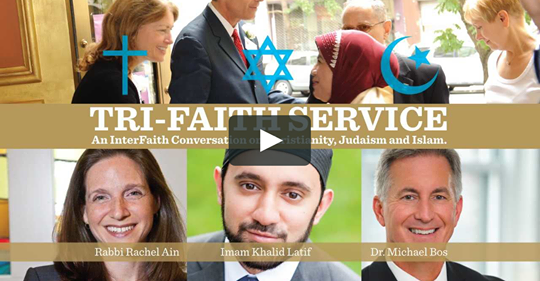
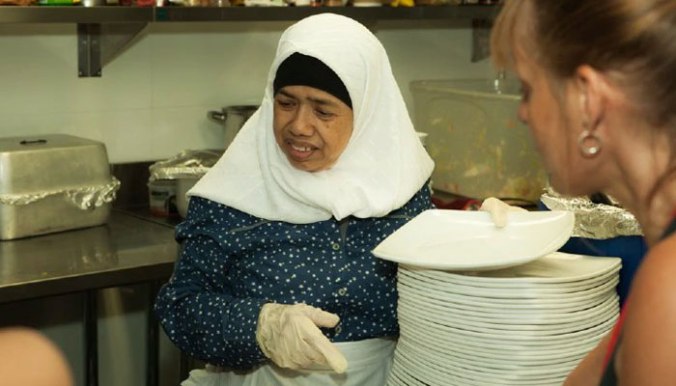 Known affectionately as the ‘Muslim Mother Teresa’ for the noble cause she has dedicated her life towards, Montreal’s Sister Sabariah Hussein feeds up to 500 people a day.
Known affectionately as the ‘Muslim Mother Teresa’ for the noble cause she has dedicated her life towards, Montreal’s Sister Sabariah Hussein feeds up to 500 people a day.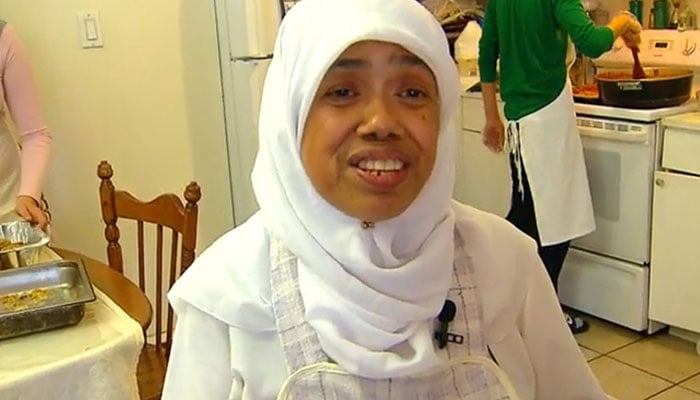
 By Yuliya Talmazan
By Yuliya Talmazan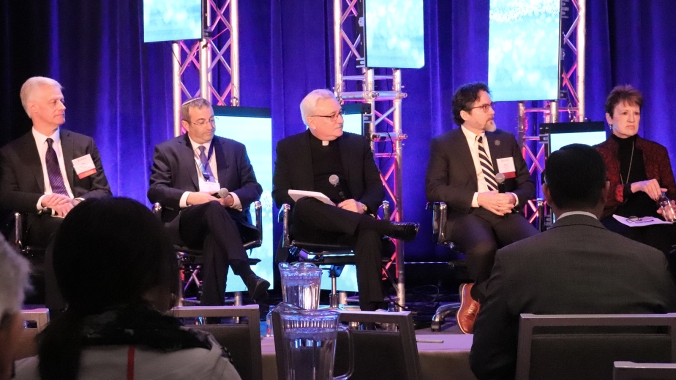 ASHINGTON (RNS) — Like most college presidents, Ari Berman and Hamza Yusuf care about giving their students the best education possible in the classroom.
ASHINGTON (RNS) — Like most college presidents, Ari Berman and Hamza Yusuf care about giving their students the best education possible in the classroom.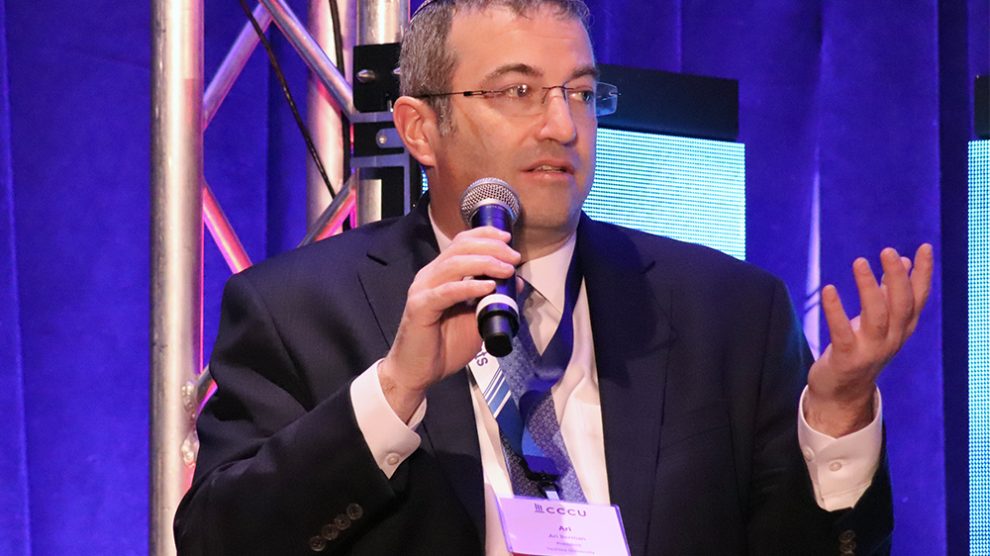
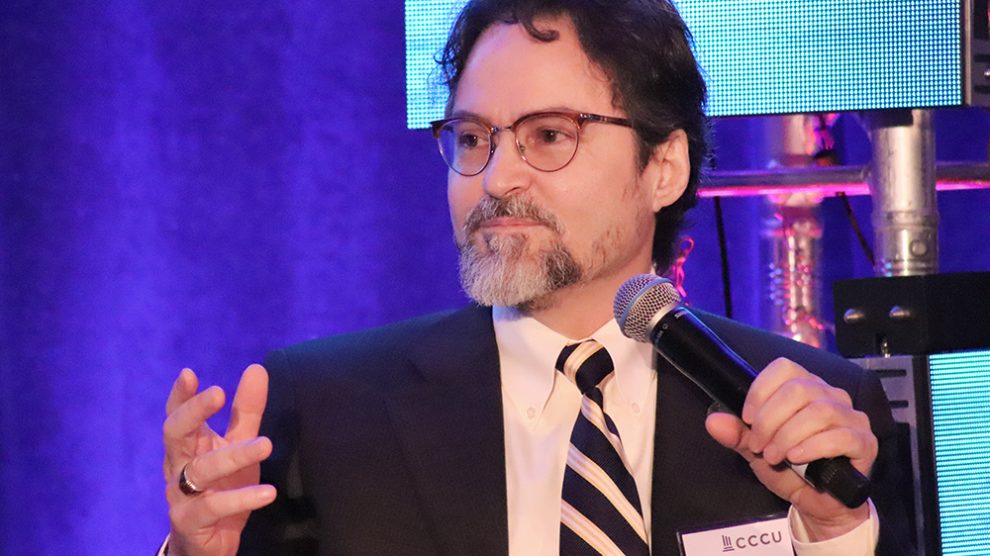
 In preparation for Sunday’s sermon, the Rev. Cress Darwin reviews the biblical book of Genesis.
In preparation for Sunday’s sermon, the Rev. Cress Darwin reviews the biblical book of Genesis.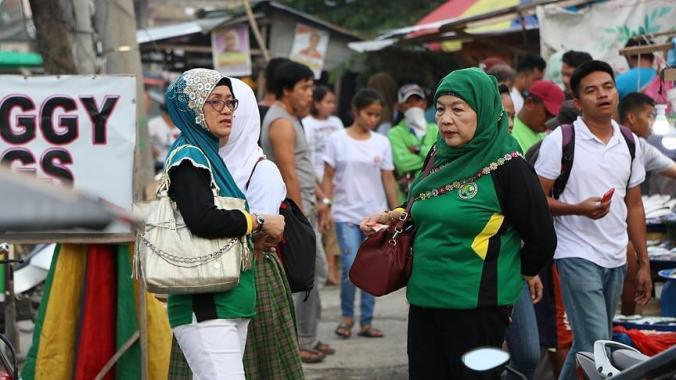 Among the supporters of a new law to give greater autonomy to a Muslim-majority region of the Philippines are local evangelical Christians.
Among the supporters of a new law to give greater autonomy to a Muslim-majority region of the Philippines are local evangelical Christians. VATICAN CITY (CNS) — Pope Francis said his recent visit to the United Arab Emirates, while brief, was a new page in relations between Christians and Muslims at a time when conflict and violence threaten the goal of lasting peace.
VATICAN CITY (CNS) — Pope Francis said his recent visit to the United Arab Emirates, while brief, was a new page in relations between Christians and Muslims at a time when conflict and violence threaten the goal of lasting peace. A Dutch former far-right MP and right-hand man of anti-Islam politician Geert Wilders has set tongues wagging in the
A Dutch former far-right MP and right-hand man of anti-Islam politician Geert Wilders has set tongues wagging in the